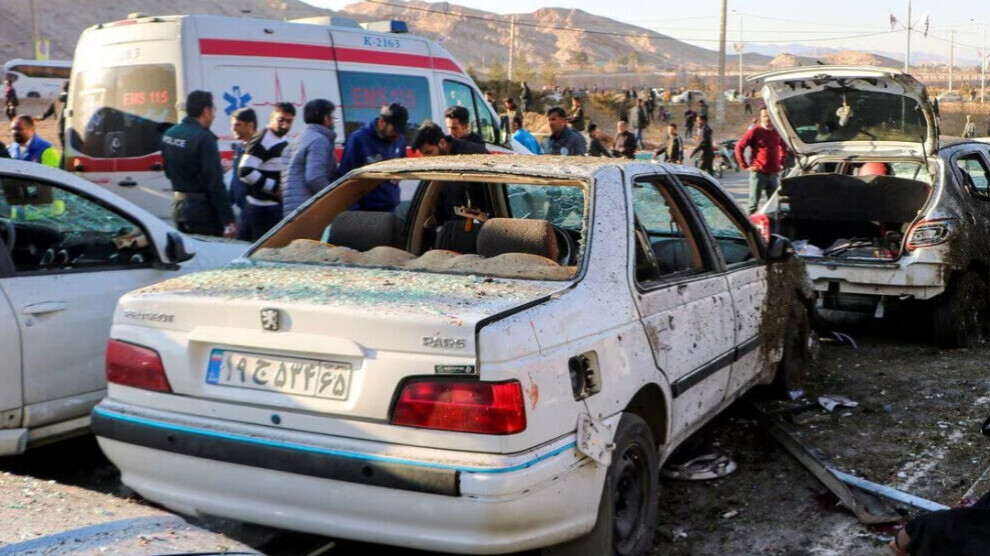More arrests in Iran following double suicide attack last week
A double suicide attack in Kerman, South Iran, killed more than 90 people on Wednesday. ISIS claimed responsibility for the attack. New arrests were made on Sunday.
A double suicide attack in Kerman, South Iran, killed more than 90 people on Wednesday. ISIS claimed responsibility for the attack. New arrests were made on Sunday.

The Iranian regime said on Sunday it has carried out more arrests after Wednesday's terrorist attack that left over 90 people dead. 32 people were detained in connection with the double suicide attack in Kerman, the state news agency Irna reported, citing the provincial prosecutor.
The Islamic State claimed responsibility for the attack. In the past few months, 23 suspected ISIS members have been arrested and more than 60 bombs have been found. On Friday, Iran's Secret Service reported a number of arrests.
On Wednesday, two suicide bombers killed more than 90 people and injured around 280 others. The attack was aimed at a memorial event to mark the anniversary of the death of General Ghassem Soleimani in his hometown. It was the deadliest attack in the 45-year history of the Islamic Republic.
ISIS views Iran's predominant Shiite population as apostates from Islam and therefore consider them as targets. Shia, the smaller of the two major branches of Islam, is the state religion of the Islamic Republic. A regional branch of ISIS is active in neighboring Afghanistan, where the group wants to establish a “province” called IS-Khorasan near Pakistan.
There was an attack on a minibus in the Afghan capital Kabul on Saturday, for which ISIS also claimed responsibility. According to the ruling Taliban, five people were killed and 15 injured in the attack with an explosive device in a predominantly Shiite district.
Regional branches want a global caliphate
The “Islamic State Khorasan Province,” or ISPK for short, was formed in 2015 as one of numerous regional groups that swore loyalty to then-ISIS leader Abu Bakr al-Baghdadi. They emerged after the emergence of ISIS in the core areas of Syria and Iraq with the aim of establishing a global “caliphate”.